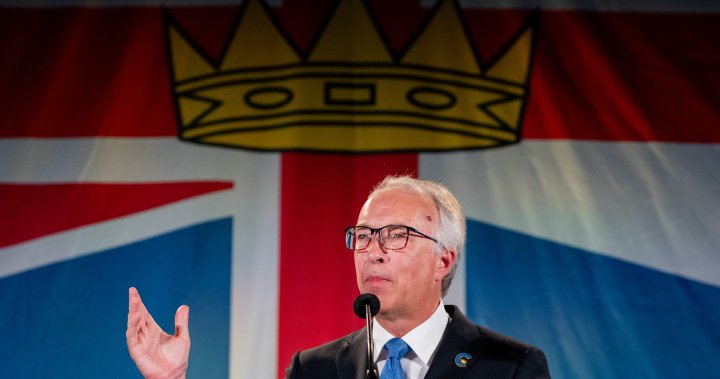In a significant development that continues to rock British Columbia’s political landscape, key staff members of the BC Conservative Party have declined to provide formal statements to police regarding an alleged blackmail attempt that has embroiled party leader John Rustad in controversy.
The investigation, which has cast a shadow over the provincial political scene for weeks, centers on claims that Rustad was subjected to blackmail threats demanding his resignation. The allegations emerged during a turbulent period for the party, which has seen its fortunes rise dramatically in recent polls, positioning it as a serious contender in upcoming provincial elections.
According to sources close to the investigation, several senior staff members who were previously identified as potential witnesses have now opted not to cooperate with police inquiries. This decision creates a substantial obstacle for investigators attempting to piece together the events surrounding the alleged blackmail attempt.
“When individuals central to an investigation choose not to provide statements, it significantly complicates the process of establishing facts,” explained former Crown prosecutor Miranda Jenkins, who is not affiliated with the case. “In situations involving political figures, these investigations often face additional layers of complexity due to the public interest and potential implications.”
The BC Conservative Party has experienced remarkable growth over the past year, transforming from a minor political entity to a significant force that recent polls show challenging the governing NDP. This rapid ascension has not been without internal tensions, as evidenced by the blackmail allegations and subsequent fallout.
Political analyst Dr. Thomas Chen from the University of British Columbia notes that this investigation comes at a particularly sensitive time. “The party is attempting to solidify its newfound support while simultaneously managing internal governance challenges that often accompany rapid growth,” Chen told CO24 News. “How they navigate this investigation could significantly impact public perception heading into the next election cycle.”
The alleged blackmail attempt was first reported to the Royal Canadian Mounted Police several weeks ago, prompting an investigation that has since expanded to include multiple interviews and evidence collection. Law enforcement officials have remained tight-lipped about specific details, citing the ongoing nature of their inquiry.
Party spokesperson Rebecca Schultz issued a brief statement indicating that “while some individuals have exercised their legal right not to provide formal statements at this time, the party remains committed to full transparency and continues to cooperate with authorities where appropriate.”
Legal experts suggest that the investigation could face substantial challenges without the cooperation of key witnesses. Criminal defense attorney James Worthington explains that “in cases of alleged blackmail, contemporaneous evidence and witness testimony are often crucial elements for building a case that would meet the threshold for criminal charges.”
The situation has drawn attention from across Canada’s political spectrum, with observers noting potential implications for provincial politics and party dynamics. As British Columbia approaches its next electoral cycle, questions persist about how this investigation might influence voter perceptions and party unity.
As this complex investigation continues to unfold, British Columbians are left to wonder: How will these internal challenges affect the Conservative Party’s momentum, and what might this reveal about the pressures facing political organizations during periods of rapid growth and increased public scrutiny?























